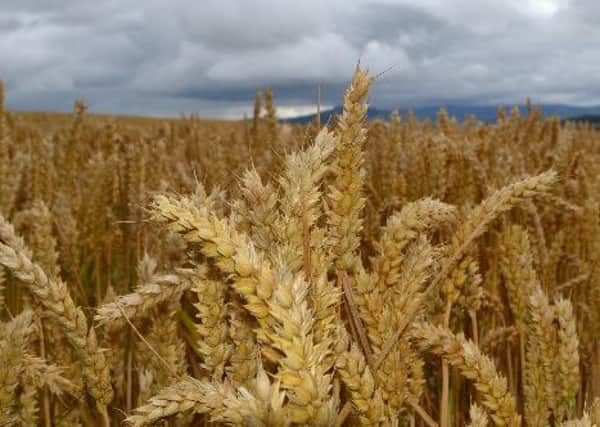Cereal farmers feel the pinch


This is on slim to non-existent grounds based around a theoretical cancer risk. To put this in perspective glyphosate is the world’s most widely used herbicide, so if there is a problem it would have almost certainly been found in more than one study. It is a product arable farmers cannot realistically do without.
Another angle is that against the theoretical risk that has emerged you would have to eat 86 tonnes of grain in one sitting to be exposed to any toxic effects of glyphosate. That claim comes from a site dedicated to ‘exposing nutritional quackery’ that underlines why risk is inevitable in everything we do, but stressed that it has to be seen in perspective.
Advertisement
Hide AdAdvertisement
Hide AdBanning glyphosate would have no impact on cancer rates, but at a stroke it would make European grain production globally uncompetitive. That would have significant implications outside Europe. The EU produces 13 per cent of the world’s cereals, but is its biggest exporter. If it could not compete internationally it would drive up prices in countries that depend on importing European grain. That might be good for grain farmers elsewhere – but it would be of little value to European producers suffering loss of yields and profitability, because they have been banned from using an effective herbicide that the rest of the world is still using. It is easy to see why environmentalists would want this, since it would undermine genetically modified (GM) crops resistant to glyphosate. But those calling for a ban need to set this against the impact of making agriculture in Europe less globally competitive.
The European Commission has proposed renewing the glyphosate licence for another 15 years. It is struggling to get the majority it needs from member states in the scientific committee responsible for that decision. This is because yet again the line between politics and scientific judgement is being blurred in Brussels. On glyphosate there are two conflicting views. One from the European Food Safety Authority (EFSA), which advises the Commission, says it is ‘unlikely to cause cancer’. However part of the World Health Organisation, the Agency for Research on Cancer, has said there is some evidence that glyphosate could be deemed a potential carcinogen.
This academic disagreement has led MEPs on the parliament’s environment committee to call for a delay to any decision. This is despite them having no formal role in the process of renewing the licence. This is the precautionary principle being taken to extremes, on the basis of slim and disputed evidence of a theoretical cancer risk. What the Commission needs to make clear is that all decisions must be based around a risk/reward balance of the available scientific facts. That is what the Commission, to its credit, is trying to do. But MEPs are grand-standing, by calling for a product to be banned, or at best kicked into touch with a review, with no real scientific evidence that this would be justified – and seemingly without any thought about the implications for agriculture of such a decision.
This is a call that is generating publicity for the MEPs involved. Even if it goes nowhere it will harm agriculture, because it creates doubt in consumers’ minds. It builds on a false belief that there is a realistic alternative to agrochemicals if we are to have a secure supply of affordable food in Europe. While this has created a row the MEPs are unlikely to alter the Commission decision. As things stand this will go the way of many GM approvals, in that there will be no qualified majority to approve or reject, meaning the Commission will impose a decision in favour of its proposal. This is not a good way to take decisions, but the voting system in the EU means there is no alternative. The UK and Ireland are backing the Commission plan to renew the glyphosate licence, but with voting finely balanced it would not take too much of a shift in member state opinion to land agriculture with a major problem.